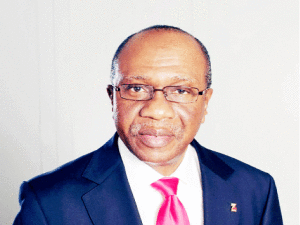
The Central Bank of Nigeria (CBN) has reiterated that it has no intention to crowd out financial institutions from financing the real sector, particularly agriculture sub-sector of the economy through its various intervention funds, but rather to complement their efforts.
Speaking at the 22 seminar for finance correspondents and business editors in Abakaliki, Ebonyi State yesterday, the governor, Central Bank of Nigeria (CBN), Mr Godwin Emefiele, said due to the high cost of funds, it had initiated the intervention funds to propel lending at reasonable rates to the real sector.
Emefiele, who was represented by the director, Monetary Policy Department, Mr Moses Tule, noted that efforts of the Central Bank transcend its core mandate of monetary and price stability, but involves developmental activities to stimulate growth.
He noted that the apex bank had devoted critical resources by way of intervention in the N220 billion micro, small and medium enterprises (MSMEs), Agricultural Credit Guarantee Scheme Fund (ACGSF), Commercial Agricultural Credit Scheme (CACS) amongst others.
According to him, the developmental initiatives became necessary given that Nigeria is a developing economy with the inherent development challenges, which he said require more efforts to be put in by the various government agencies.
In his presentation, CBN director, Research Department, Dr Uwatt B. Uwatt, stated that the major challenges inhibiting the growth of the real sector particularly agriculture, manufacturing and solid minerals subsectors include a low level of investment in research and development.
He noted that the lack of research and development has made the process of production inefficient and more expensive and largely dependent on imported raw materials, adding that the nation’s abundant natural resources that ought to serve as raw materials, were exported only to be imported back into the country.
On her own part, Dr Grace Evbuomwan of the department of Banking and Finance of Covenant University, stressed the need for infrastructural development in the country in growing output of the agricultural sector. She added that to grow the agriculture subsector, the value chain needs to be well financed.
She also urged the monetary authority to ensure macroeconomic stability by addressing the issue of fluctuating exchange rates, rising interest rates and inflation rates alongside improving access to long term credit facilities.
Source: Leadership












